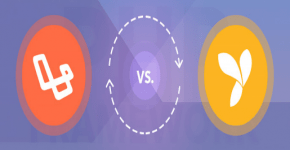Simple SEO Tips & Tricks to Improve Search Engine Indexing
Creating a website is not enough. It would be best to promote it by increasing its visibility on various search engine platforms like Google, Yahoo, and Bing.
Search engine indexing is one of those crucial things that will make your website visible to potential web visitors or users. Search engine spiders crawl a web page and put the data into an index. This index is also known as a search engine database.
In layman’s terms, search engine indexing collects, processes, and stores data about a URL to provide quick and precise information retrieval.
Below are some great tips and tricks to help boost the search engine indexing of your website and generate more potential users:
1. Create Unique, Compelling and Quality Content
Believe it or not! Content is the King on your website. It plays a pivotal role in boosting your website’s ranking. Creating copied and low-quality content won’t work in favor of you.
Google and other search engine crawlers index web pages if you have written unique and quality content. This will encourage Google to come to your site and increase the crawl rate.
2. Include your sitemap to Google Webmaster Tools
What is a sitemap? It is an XML document on your site server that provides information to Google when new pages are added, updated, and edited. It simply provides precise details about your website’s URL structure.
This allows Google to crawl your website quickly and easily, which in turn improves indexing. So, it is your prime responsibility to submit your sitemap in Google Webmaster Tools.
3. Submit your Website’s URL to Google
Do you know that Google has automated search engines that crawl the web constantly and detect websites to add to their index?
So, it becomes imperative to submit your website URL to the search engine of Google by visiting the Webmaster Tools.
4. Pay Attention to Social Media Profiles
There is no denying that social networking profiles of a new website can help you boost search engine indexing. If you already have a social media profile, keep updating it and also add a link to your new site.
Make sure your profiles are available on Facebook, Twitter, Instagram, LinkedIn, Pinterest, Google + and YouTube.
Keep updating your profiles by creating video content or adding images related to your online business.
Read Also: How To Get Google To Index Your New Website Immediately?
5. Let Google Spiders Crawl your Website
Google spiders don’t spend much time to crawl a website. So, it is important to make sure that Google can do the crawling of your website effectively and cover all web pages. For that you will need to do the following things:
- Create a fast-loading website. If your web pages are taking more than 3 seconds to load, Google won’t crawl your website.
- Fix potential errors on your website. Broken links are not acceptable by Google.
- Restrict the requirement to redirect pages
- Fix all web server problems quickly
6. Easy Navigation and Site Structure
It is good to focus on keeping the structures of your site’s URL simple and issue-free. Navigation through your web pages should be easy and accessible.
- Proper working of cross-linking. All pages of your website are linked not more than 3-4 levels from the homepage
- Add breadcrumb links on all pages. This will help a page to appear and show the vertical site hierarchy
- Create a multi-level HTML sitemap and link it to your homepage.
- Connect the XML sitemaps via a daisy chain method for a large site.
7. Prepare Offsite Content
It is a good strategy to submit guest posts on free article websites and create offsite content. This will help backlinks trigger Google and re-crawl and index your website content.
You can create excellent backlinks by posting comments on other blogs or preparing press releases.
Tip: Avoid spam sites as it will affect your website’s ranking. So, create offsite content and guest posts strategically.
Wrapping up
Hopefully! The article has helped you in boosting the search engine indexing of your website. However, it is always good to hire SEO professionals who can improve your site’s ranking, submit the sitemap to the Webmaster Tools, and help do on-site and off-site SEO strategies.





